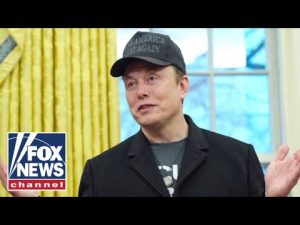In a world increasingly tangled in red tape and conflicting ideologies, a beacon of hope for free speech has emerged, courtesy of Meta’s Mark Zuckerberg. Recently, Zuckerberg announced transformative changes to the way Facebook and Instagram will handle content moderation. While many may be quick to raise their eyebrows or let skepticism seep into their thoughts, one cannot help but feel a glimmer of optimism. Perhaps the changing of the guard is underway for these social media giants.
Zuckerberg, in a moment that felt like a long-awaited revelation, declared his intent to dismantle the stranglehold of biased fact-checkers that have plagued the platforms. Gone will be the days of content being filtered through chiropteran wings of left-leaning bias; instead, a community-driven system is to take its place, much like its counterpart on X (formerly known as Twitter). This shift is a collective sigh of relief for those who feel stifled and misrepresented by a system designed to suppress divergent opinions. The hope is that this will restore balance to discourse, allowing more voices to take center stage.
Yet, skepticism lingers like an unwanted guest at a lively dinner party. The transformation is commendable, but can Zuckerberg really be trusted to steer this massive ship in the right direction? History has shown that policies can be manipulated based on the changing political winds. As discussions swirl around potential cooperation between Zuckerberg and Donald Trump on global censorship issues, questions arise concerning the continuity of these newfound freedoms. Will this be another fleeting attempt, or is there genuine intent behind it?
Across the pond, Europe is closely watching these developments. As Meta faces increasing pressure from bureaucrats in the European Union, the fear of free speech gaining even a morsel of traction has prompted calls for stricter content moderation laws. The irony is splendid: the continent that once prided itself on its values of freedom and expression now seems poised to clamp down even harder on dissenting voices. One such figure facing the brunt of this crackdown is Tommy Robinson, a man whose outspoken nature has made him both a figure of admiration and contention in the UK. The chilling trend of individuals facing legal repercussions for online expression is deeply troubling.
Internal tensions are sure to escalate if the U.S. aligns more closely with Zuckerberg’s new policies while the EU digs its heels in against perceived aberrations of their progressive agenda. The United Kingdom’s new labor government could complicate this scenario further, threatening to cozy up with more liberal values and less free speech. The potential for a transatlantic clash of ideologies on free speech is brewing, and it’s a complex tapestry that leaves one to wonder what the future holds in both continents.
As the dust settles on Zuckerberg’s announcements and the sentiments in Europe begin to bubble, one cannot underestimate the significance of these changes in the grand theater of global communication. While change is often marred by uncertainty and skepticism, the opportunity for a freer, more inclusive dialogue is a tantalizing prospect. It would seem that the battle for free speech is far from over, and as the world tunes in, everyone must stay vigilant and engaged. The era of free expression may be on the brink of a renaissance, and while skepticism is warranted, hope is certainly contagious.







